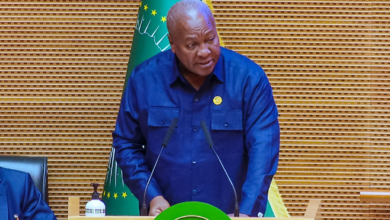« Local cocoa processing: opportunities for chocolate artisans » was the theme of the 8th edition of the National Cocoa and Chocolate Day (JNCC), organized by the Ivorian government, prior to the launch of the marketing campaign in the country. An opportunity to take stock of the major challenges of the sector.
By Issiaka N’Guessan, in Abidjan
From the outset, the Ivorian Minister of Agriculture and Rural Development set the course. « This day is being held in a global context marked by the Russian-Ukrainian crisis that affects all agricultural markets. While the prices of agricultural inputs have risen sharply, the prices of products have fallen on international markets. A worrying paradoxical trend, Kobenan Kouassi Adjoumani said at the National Cocoa and Chocolate Day (JNCC). This event took place on September 30 and brought together several hundred people. It marks the beginning of the marketing campaign of the coffee-cocoa season, the lifeblood of the Ivorian economy.
Kobenan Kouassi Adjoumani recognized that « the international context calls for speeding up initiatives for the modernization of the agricultural sector and the processing of our agricultural products locally.” For this purpose, he highlighted the efforts made by the Ivorian government to support cocoa farmers. Among the measures taken: the release of 17 billion CFA francs (26 million euros) to help the sector address the impact of the COVID pandemic and a support for producers to the tune of 134 billion CFA francs (205 million euros) to compensate for falling prices.
Côte d’Ivoire is once again world’s leading producer and provides 40% of the world’s cocoa bean supply
Cocoa and coffee alone account for half of Côte d’Ivoire’s exports. According to figures from the United Nations Food and Agriculture Organization (FAO), relayed by the Coffee and Cocoa Council (CCC), the country produced more than two million two hundred thousand tons of cocoa beans in 2020, compared to 1,301,347 tons in 2010. Côte d’Ivoire has therefore become again the world’s top producer and provides 40% of the world cocoa beans supply. The coffee-cocoa pair represents 15% of the Ivorian gross domestic product (GDP), and a significant part of the state budget, in 2023, amounting to more than eleven billion CFA francs (16 million euros).
In this regard, Kobenan Kouassi Adjoumani invited the Ivorian youth to embrace an « entrepreneurial and innovative spirit in the processing dynamics through the development of all products that can be drawn from the cocoa bean, to become national champions of cocoa and chocolate.” A youth, present in number at the forum and eager to get involved in this sector.
“It is not normal to produce cocoa and buy it at high price”
In the aisles of the fair, Fulgence Kouadio, artisan at “Chocolatier ivoirien,” a local brand, said “it is not normal to produce cocoa and buy it at high price.” The same observation came out from another stand. For Tio Mamba, an employee of the French group Cémoi, « chocolate must be integrated into the daily lives of Ivorians. As the leading producer of cocoa, Côte d’Ivoire does not consume enough chocolate. The majority of our production is exported and processed in other countries. »
Fulbert Koffi, a newcomer to the field, states that « cocoa is a hope for Côte d’Ivoire, but this country should change its paradigm because producing exclusively beans does not guarantee a better future, compared to countries that process and sell directly to consumers. « The authorities are in a logic of production and export,” according to him. But this does not guarantee added value. We must change our strategy. Being satisfied with the single export duty, levied on cocoa beans, sixty-two years after independence is no longer enough. » Fulbert Koffi recommends « a transfer of technology » because, « as long as multinationals buy and process the raw material to sell it back to us, nothing will have changed. »
« The major challenge is to have our own certification standards »
Obed Blondé Doua presides over the association of producers and professional agricultural organizations of the Mountainous West. This organization brings together just over five hundred cocoa farmers in the Man region, 580 km from Abidjan, the economic capital. Obed Blondé Doua has a critical look at the challenges awaiting primary producers of coffee and cocoa in Côte d’Ivoire. « I welcome all the reforms put in place on the issue of sustainability and traceability, but for us, cocoa farmers, the major challenge today is the creation of our own certification standards, » he said.
Obed Doua Blondé believes this labeling will allow producers to benefit from premiums and will encourage the state to comply with the prices it has set itself, without any means for monitoring.
Another challenge expected by Ivorian producers: « the issue of local processing through cooperatives. These initiatives need to be supported by the state. A public fund is needed so that processing be initiated by producers, » recommends Obed Blondé Doua.
“In the context of climate change, the sector’s modernization can contribute to increasing yields through the adoption of agro-ecological strategies, including reforestation”
« If the initiative for small-scale processing is taken by multinationals, the dividends will go to them. Cocoa powder and butter can be made in all cooperatives, even if at only 30%, and they could have enough yields, » argues this spokesperson for farmers. « It is necessary that a share of the sector goes to national stakeholders, that processing be initiated by cooperatives. This way, we will be able to produce an added value. Otherwise, the producer will always be harmed, » says Obed Blondé Doua.
« Any improvement in agricultural incomes should stimulate demand for consumer goods and investment, on the one hand, and increase national savings, on the other, » argues Dr. Assi Tano Maxime, a teacher-researcher in economics at Peleforo Gon Coulibaly University in Korhogo. « On the socio-economic level, although cocoa farming provides an income to one fifth of the population, it contributes very little to improving the living conditions of producers, most of whom are now living below the poverty line.”
To revive local production, the researcher recommends that the sector’s stakeholders address the major issue of climate change. « The modernization of the cocoa agricultural sub-sector can contribute to increasing yields by adopting agro-ecological strategies, including reforestation. » He added: « consumer demands to fight deforestation and child labor in cocoa farming require the implementation of a traceability system to guarantee a cocoa responsible to consumers. »






